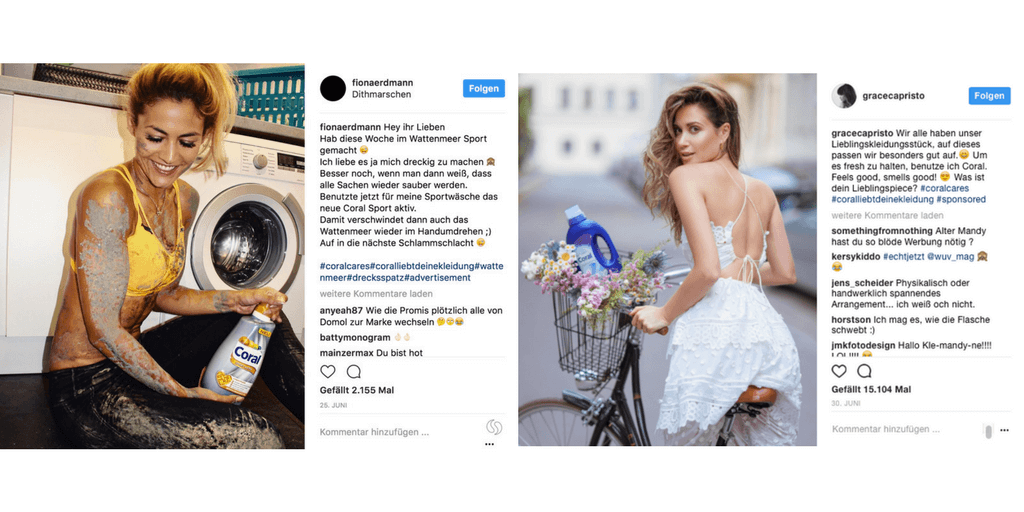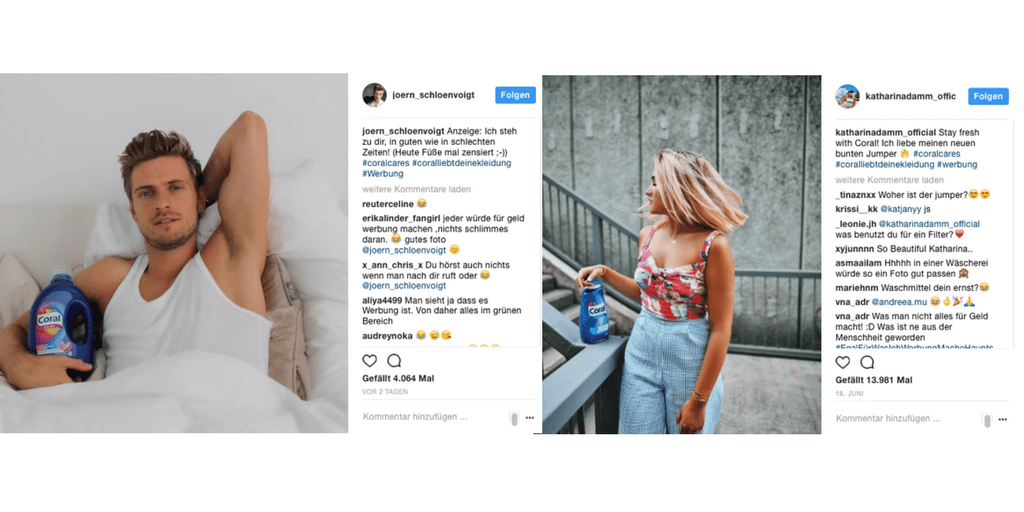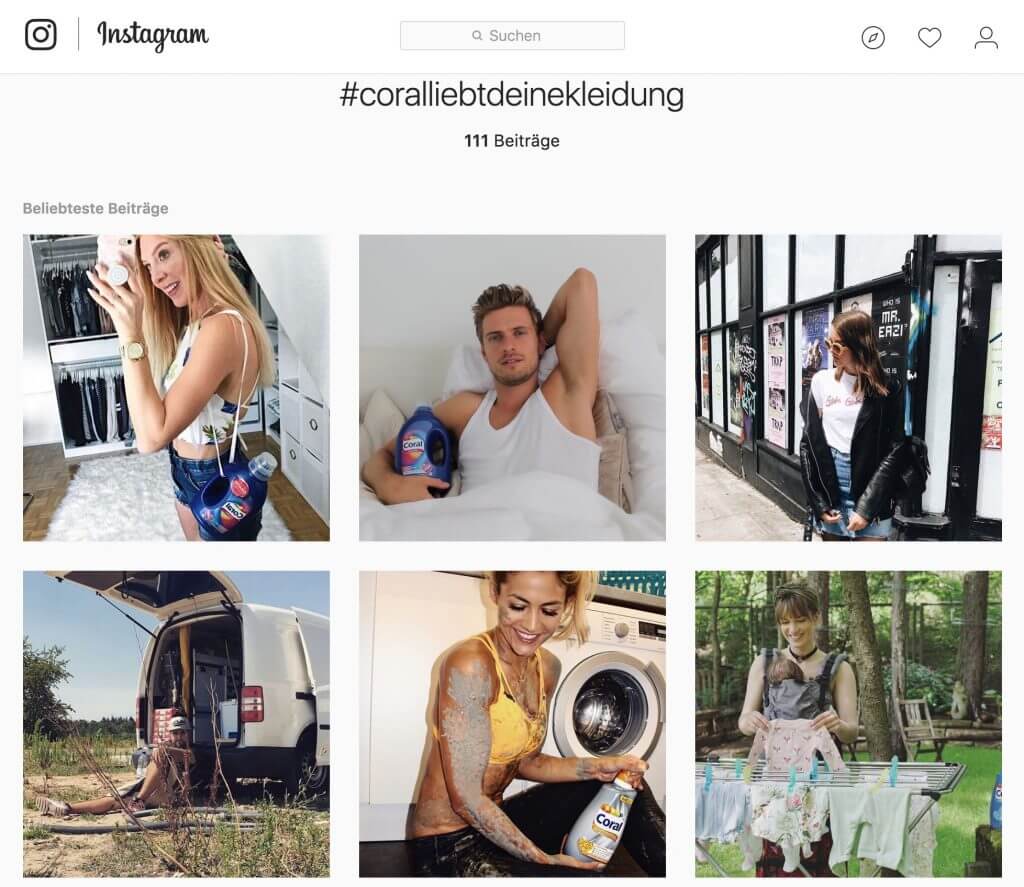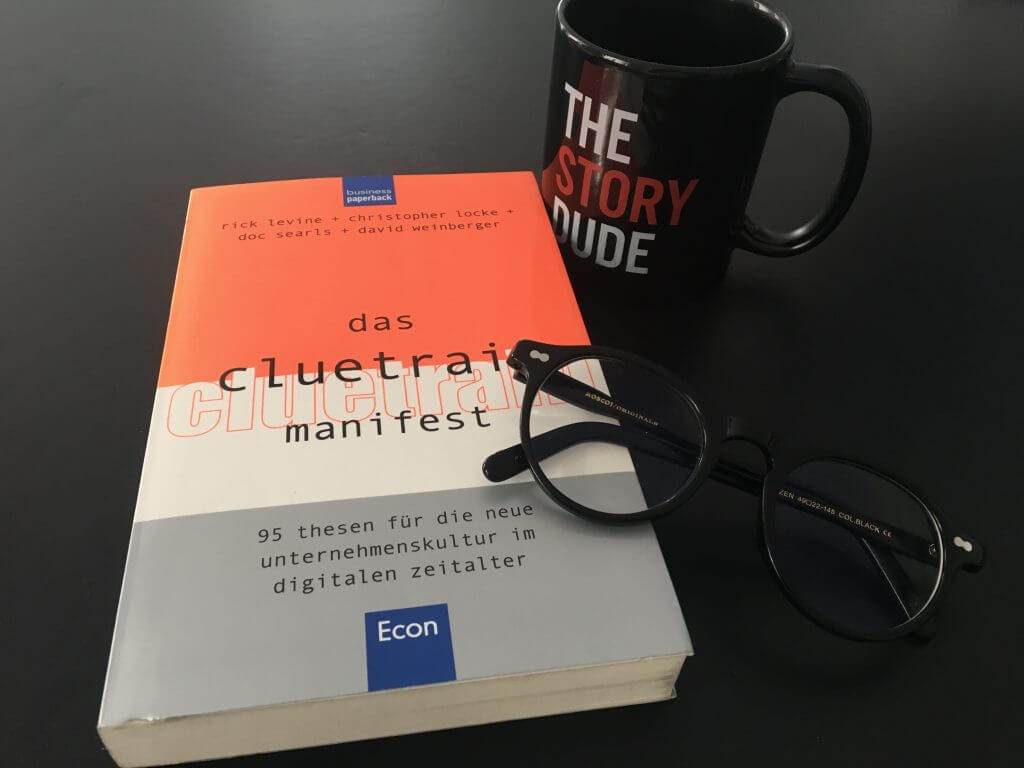I have always learned the most from my mistakes. It's not terribly pleasant, but it has a lasting effect. You simply have to make some mistakes, but not all of them yourself. Fortunately, others often make mistakes before you have the chance to do so yourself and thus point out the potholes on the road to marketing success. In front of one of these potholes, at least since #coralliebtdeinekleidung, is the warning sign: "Attention! Don't forget credibility!
You don't have to make every mistake yourself in order to learn something.
But one thing at a time.
The influencer spirits you call ...
Social media is the devil's work. Influencer marketing even more so. And in combination? It can bring heavenly success, but if you're not careful, the shitstorm will blow you to kingdom come. If this circumstance still needed proof, then Coral provides it with its current influencer campaign.
Practically every relevant study on the power of recommendation marketing shows that product recommendations by users have an excellent effect, somewhere around 80/90 percent higher than the very best advertising message of the brand itself. Keyword: enormous credibility.
If I want to buy skis and don't really know what I'm doing, it's best to ask my friend Thomas, the ski hero, what to do. Dear Thomas will probably start his expertise with the sentence "It depends ..." and finally tell me the right model. He knows his stuff, I don't. We are friends, what can go wrong? - Off to the ski dealer.
Referral marketing: a wonderful old hat.
This system is as old as the Neanderthal. "Hey, where did you buy that awesome club?" - "At Keulen-Karl's, of course, he's got the worst parts, I swear, bro!"
For those without Thomas in their circle of friends, a well-trained ski sales professional is standing by at the specialist retailer, presumably beginning his expertise with the sentence "It depends ..." and soon ending up with: "I use this model myself and swear by it." Or he pulls hard on the credibility lever: "I have the other model, but if I were buying one now, I'd take this one." - Thank you, give it to me!
Because we are now simply an insane number of Neanderthals, talking is no longer enough. That's why the same game is now played online for all sectors and products - in forums, on recommendation platforms, from Amazon to Zalando and on Tripadvisor & Co. anyway. Five stars, customers who bought X also bought Y ...
Celebrities in advertising: always a popular choice.
In traditional advertising, the powerful recommendation system is often replicated with so-called testimonials: with real customers, or with guys who pretend to be real customers, or with celebrities who recommend products. Sometimes without even using it once, but you're not that young anymore and you still need the money, what else...?
If this is done well, then attributes of the celebrity - sportiness, youthfulness, sexiness - are transferred to the own brand at the same time.
Creative circles like to scoff that advertising agencies always suggest celebrity testimonials to their clients when they don't have an idea. That's not true, of course. Unless it is true.
Influencers, the celebrities of the internet, offer a very decisive extra advantage: they are particularly close to their audience, they may be the chairperson, but they are also part of their community, their community of opinion, and thus usually at the very, very top of the credibility scale.
Yes, FAITHFUL is the magic word from which the magic springs.
Credibility belongs in the preliminary and main wash.
So we are back to Coral . To sum up, if you want to know what happens when you do everything wrong at the same time, check out #coralliebtdeinekleidung or #coralcares.



These people do not speak for the brand, something is put in their mouths. No one believes they take care of their laundry (themselves) and this is confirmed with images that couldn't be more contrived and un-authentic. The result: a shitstorm that was a wash and proof that detergent advertising is popularly regarded as synonymous with the most simple-minded thing advertising can produce and remains valid even in the digital age.
All of this may seem a little complicated, but it is not. On the contrary. It's quite simple for mega brands and your organic ice cream start-up, for the hairdresser on the corner and the car dealer, in other words for everyone who relies on successful referral marketing.
- It's best to let others speak well of you & your brand.
- Best of all, people who use your product and therefore recommend it to others.
- If you hire others for this, no matter whether they are normal or celebrities, then everything has to fit together perfectly. And that means first of all:
- Be authentic.
- Be credible.
- If you think there's a trick to it, in the very best case you'll be ignored, but usually you'll be beaten up on the web. - With what? With justice!
People are not order numbers.
Why do mistakes of this kind happen so often to very large companies, see Pepsi & Kendall Jenner?
Because they probably still talk about "end consumers" when they really mean people. Because they explain the world to themselves with numbers and Excel spreadsheets and not with truth, and thus simply lack respect.

Do you know this Cluetrain Manifesto? Everyone in marketing communication should write down the core sentence of this book with a thick Sharpie and take it to heart with every breath. Because otherwise the chances are good that the good old end consumers will write it down for you, with your nose blood on the wall:
"If you only have time for one clue this year, this is the one to get: We are not seats or eyeballs or end users or consumers. We are human beings and our reach exceeds your grasp. Deal with it."
Brand story is not an advertising gimmick.
The best protection against breakdowns à la Coral and Pepsi is a fundamentally well-developed brand story that activates essential core values for brand and audience, a so-called brand purpose.
- The brand purpose must be an authentic concern for the company: Would you also stand up for it without it bringing immediate advertising benefits to your brand?
- A brand purpose must contribute to the benefit of the audience.
- The audience can be activated and must not remain passive observers. In this way, they become an integral part of the brand purpose.
This cannot be achieved with fake announcers in paid postings, but only with truth. The Coral parentcompany Unilever has known this for many years and demonstrates it with the Dove True Beauty Initiative.
Therefore, for all those who not only want to talk about the award, but respectfully engage in conversation with their audience: No Story. No Glory.
